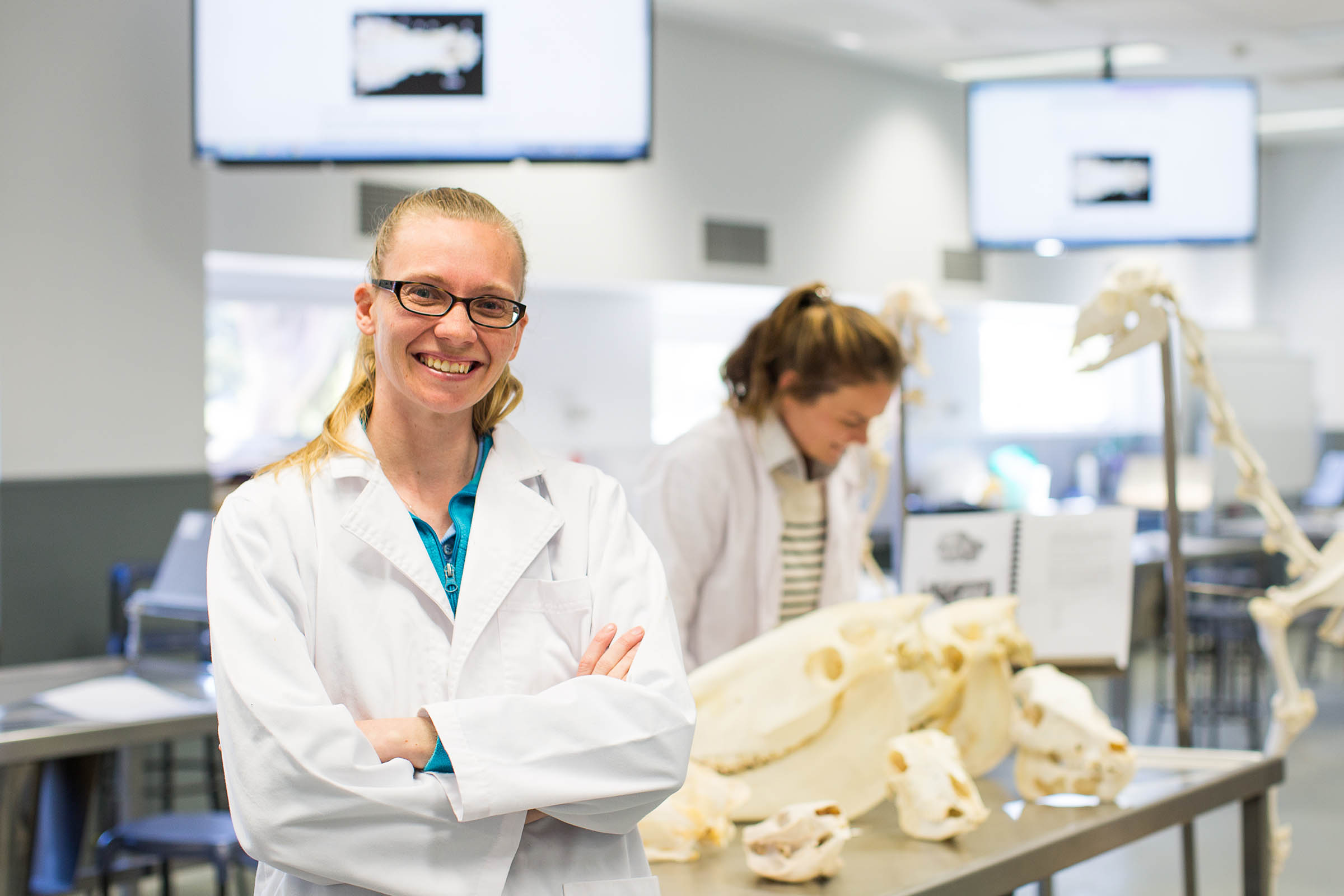If you’re passionate about helping animals, veterinary science study could be the perfect way to turn what you love into a career.
Charles Sturt University’s Bachelor of Veterinary Biology / Bachelor of Veterinary Science1 has been the pathway to an exciting, rewarding career for many of our graduates.
So we thought we would ask our animal and veterinary science experts to give us their top 10 tips for getting the most out of your veterinary science study.
1. Join a veterinary science study group
Many people study better in a group so get together with like-minded students to push and challenge each other. Don’t be competitive; look for ways to help each other instead. Being able to explain a concept to someone else is the very best evidence that you understand and have mastered the topic.
2. Maintain work–life balance
Often we define ourselves by our ‘job’: “I am a vet (student).” Well, you’re a lot more than that! You’re a daughter/son, sister/brother, friend, colleague, waiter, hockey player, etc. Remember to be kind to yourself and balance your life with your work while at uni (and in the years ahead). Make time for sport, which will help keep you mentally and physically fit, and eat well.
3. Be assured – you will get over your homesickness
Most vet students have to move away from home to study. You leave family, friends and pets behind, so homesickness may well set in. But the vet science team are a welcoming community. Try to get to know the students in your year, and across the different years, and you’ll get lots of support. Also take advantage of social events and sports clubs to meet people in other courses and widen your friendships.
4. Stay on top of your veterinary science study work
Don’t leave everything to the last minute. You might just realise the assignment is bigger than you anticipated, or you forgot about the mid-session examination that you have to sit… tomorrow. Try to avoid procrastination and ensure you get your assignments done and submitted on time. Avoid exam stress by starting revision early so you are well prepared and relaxed.
5. Don’t be afraid to ask for help
Uni counsellors are there for you, as are all staff. Lecturers are only too willing to go through any problem you may be having. Friends and family are also wonderful support teams and will be only too willing to help. Don’t be afraid to say you have a problem, as everyone does at some stage. It’s far better to talk about it than think it will just go away. If you seek help early, most problems can be sorted out.
6. Remember that people believe in you
The vet school staff, your parents and your friends – all have faith in you, so have faith in yourself. Most vet students will at some time feel a bit overwhelmed, but even if you do fail something, you’re not a failure. You can get back on the horse, figure out how to do it better, seek some assistance and have another go.
7. Get to know people
Lab technicians, admin staff, farm managers, vet nurses and lecturers – everyone at Charles Sturt wants the best for you. Veterinary practice is a small world in Australia so you will meet these people, and vet practitioners you’ve done placement with, throughout your career. Be respectful to them, and your peers, and learn as much from them as you can. Treat your final-year rotations as three-week job interviews, as this is often how the best jobs are filled.
8. Be kind to yourself and each other
Help someone out if you see them struggling. Many of your uni friends will be your best friends for life. A smile in the corridor or an invite for a cup of coffee can do wonders to help people. Students come from all walks of life – school leavers, mature age, married or single, kids or not, super-intelligent or working hard to pass. All can be successful vet students and vets with persistence, resilience and a good work ethic.
9. Know that it’s okay to make mistakes
Everyone does and it’s better to do these at uni where the consequences are not so bad than out in the real world. Learn from your mistakes; don’t try to cover up errors to save face; own the mistake and be honest with staff.
10. Make the most of every opportunity during your veterinary science study
Attend every lecture and make the most out of tutorials and practical sessions. Volunteer when help is required: become a ‘yes’ person and doors will open to you. Studying vet science is hard, but it is a great job – challenging and rewarding with a wide variety of career paths. To make the best of your career, always keep an open mind and a compassionate heart.
Find out more about a degree that can change your – and animals’ – life.

1Cricos: 068968D


You must be logged in to post a comment.